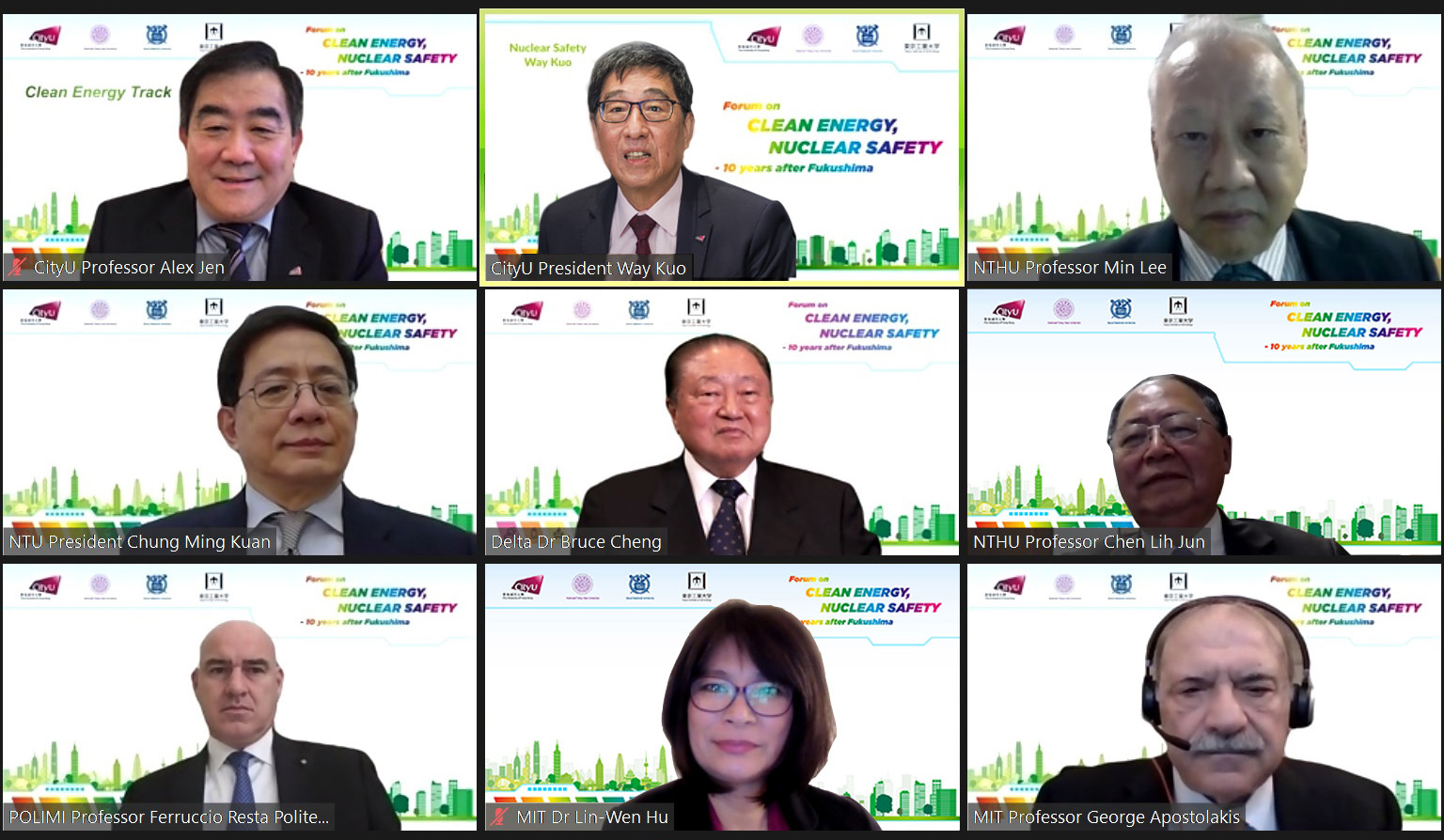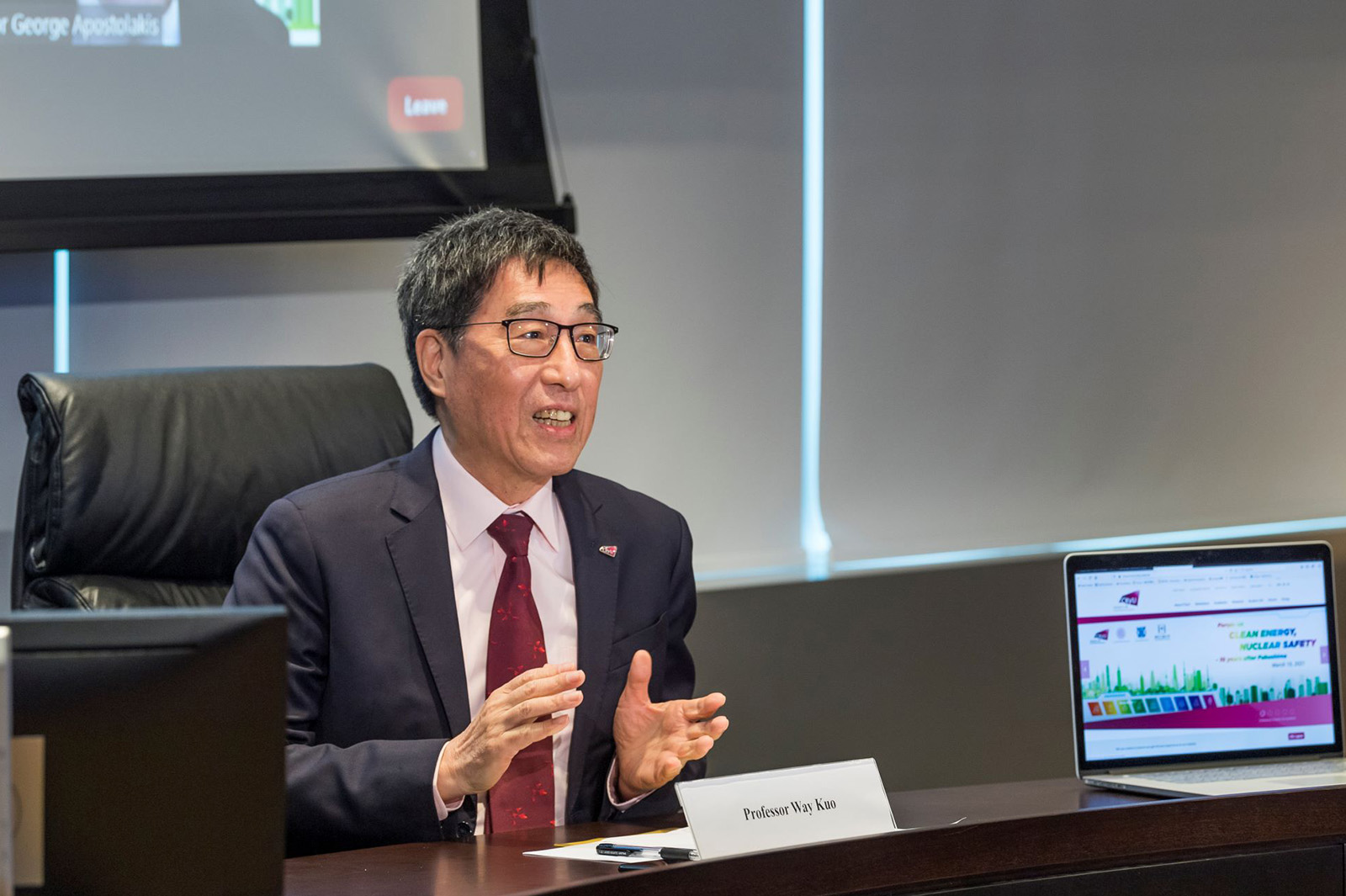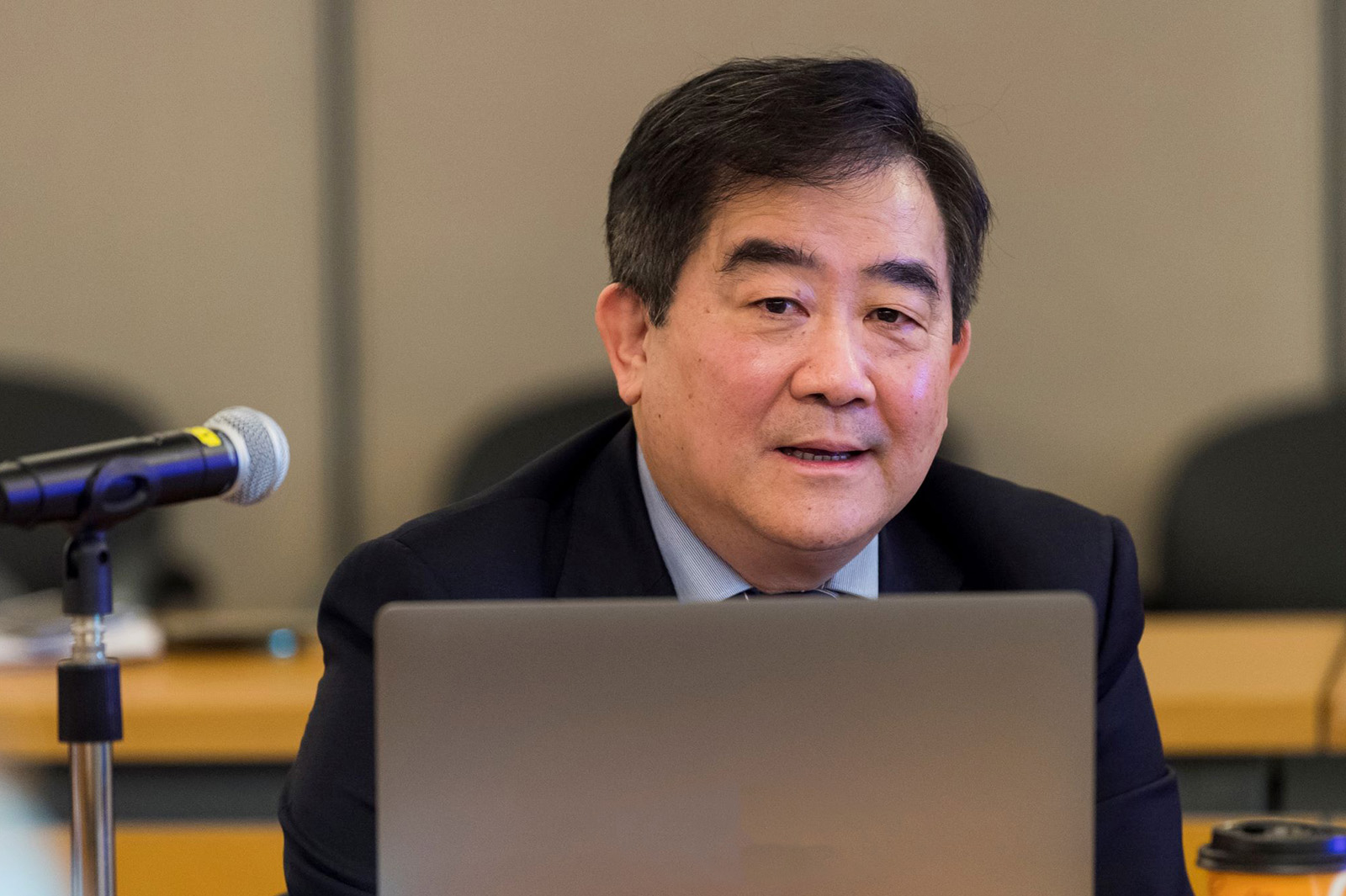

Top row (from left): Professor Alex Jen of CityU, President Way Kuo of CityU, Dean Min Lee of National Tsing Hua University.
Middle row (from left): President Chung Ming Kuan of National Taiwan University, Dr Bruce Cheng of Delta Electronics, Chancellor Lih-Jun Chen of University System of Taiwan.
Bottom row (from left): President Ferruccio Resta of Politecnico di Milano, Dr Lin-wen Hu of MIT, Professor George E. Apostolakis, Head of Nuclear Risk Research Centre, Japan; and Professor Emeritus of MIT
Thirty eight world-leading scholars, industry leaders and policy makers from around the world debated recent advances in low-carbon energy technology and nuclear safety in a specially convened online Forum on clean energy and nuclear safety on 10 March.
This event was co-hosted by City University of Hong Kong (CityU), National Tsing Hua University, Seoul National University, and Tokyo Institute of Technology. Titled “Clean Energy and nuclear safety – 10 years after Fukushima”, the Forum offered two streams, namely clean energy and nuclear safety, and approximately 2,500 participants from over 20 countries and territories participated.

At our disposal is a suite of options called the “rainbow energies”, argued President Way Kuo of CityU, a Member of the US National Academy of Engineering and General Chair for the Forum. These rainbow energies include hydropower, fossil (coal, oil and natural gas), nuclear, wind, solar, biofuel, and others (geothermal, ocean energy and marsh gas).
Upon reviewing the Fukushima crisis in March 2011, the ensuing discussions debated workable suggestions for tackling climate change, thus turning the possibility of a carbon neutral world by 2050 into a reality, according to President Kuo.
The Forum also covered clean energy, including renewable energy generation, storage including new batteries and hydrogen fuel, and utilisation such as smart energy management systems and energy saving applications.
Among the areas of discussion by some of the world’s foremost experts in this field were talks on innovative materials for printable solar cells and energy saving applications (Professor Alex Jen, Lee Shau-Kee Chair Professor of Materials Science, CityU); and high-energy cell design, fabrication and testing for the direct utilisation of Li metal anode in high-energy cells (Dr Jun Liu, Pacific Northwest National Laboratory, Richland, University of Washington, US).

Professor Md. Nazeeruddin of École Polytechnique Fédérale de Lausanne, Switzerland, joined a panel discussion on Innovative Clean Energy and Sustainable Environment.
While reflecting on the Fukushima nuclear accident, speakers discussed improving the safety of nuclear power plants (Professor George E. Apostolakis, Head of Nuclear Risk Research Centre, Japan; and Professor Emeritus of MIT); nuclear power plant safety and lessons from both the Chernobyl and Fukushima disasters (Professor Mikhail Yastrebenetsky, State Scientific Technical Center on Nuclear and Radiation Safety, Ukraine); an assessment of safety guidelines for light water reactors following accidents (Professor Min Lee, Dean and Distinguished Professor, College of Nuclear Science of National Tsing Hua University); and fusion (Professor Ian Chapman, Chief Executive of the United Kingdom Atomic Energy Authority), among others.
In addition, plenary lectures on the synergies between renewables and next-generation nuclear power were delivered by Dr Bruce Cheng, Founder and Honorary Chairman of Delta Electronics, Professor M. Stanley Whittingham, State University of New York, 2019 Nobel Laureate in Chemistry; Dr James E. Hansen, former Director of the NASA Goddard Institute for Space Studies; and the aforementioned Professor George E. Apostolakis.
The Forum concluded that while there are no easy answers for solving the energy crisis or meeting the targets set in the Paris Agreement in 2015 (COP21) for limiting global warming, and thereby averting catastrophic climate change, bringing together world-class experts and scholars to discuss strategies and new technologies is certainly a positive step towards sustaining the health of the planet.
For more details, please click here.




